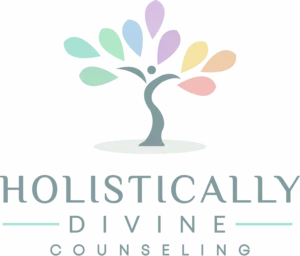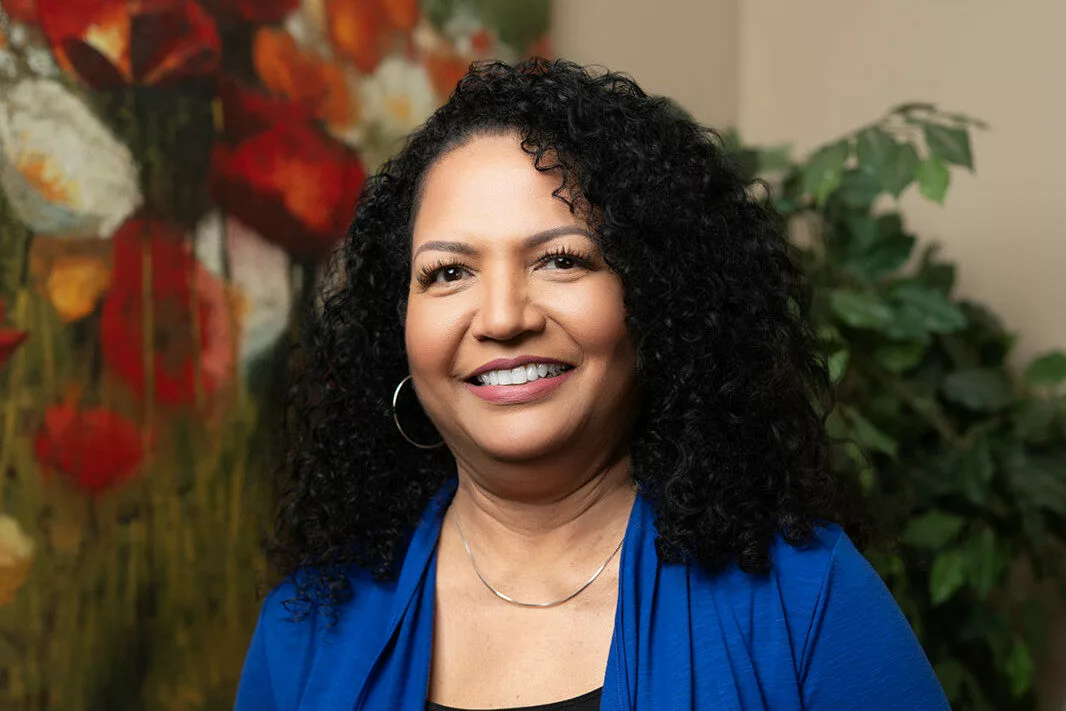Self-Esteem Therapy
We offer a compassionate space to explore self-doubt, rebuild confidence, and learn to value yourself with kindness and understanding.

Self-Esteem Therapy
We offer a compassionate space to explore self-doubt, rebuild confidence, and learn to value yourself with kindness and understanding.
-
-
-
-
-
-
- Virtual

Sherri S. Wick, MS, LCPC, NCC
Founder & Owner, Licensed Clinical Professional Counselor
Understanding Self-Esteem
You are already enough. We’re here to help you believe it.
At Holistically Divine Counseling (HDC), we understand that self-esteem is about self-worth, self-trust, and learning to see yourself through a lens of compassion rather than criticism. Whether you’ve struggled with self-doubt for years or are noticing the impact of low self-esteem on your relationships, work, or daily life, we’re here to walk alongside you as you reconnect with the truth of who you are.
What is Self-Esteem?
Self-esteem is the way you see, value, and speak to yourself. It influences your confidence, boundaries, choices, and the way you show up in the world. Healthy self-esteem means having a stable, kind, and realistic relationship with yourself.
The Importance of Healthy Self-Esteem
When your self-esteem is healthy, you’re more likely to trust your decisions, build fulfilling relationships, and take aligned risks. When it’s low, it may affect your ability to assert your needs, believe in your abilities, or feel worthy of rest, love, or success.
Signs and Symptoms of Low Self-Esteem
- Constant self-criticism or negative self-talk
- Difficulty accepting compliments
- Fear of failure or rejection
- People-pleasing or struggling to say “no”
- Comparing yourself to others
- Avoiding challenges or opportunities
What Causes Low Self-Esteem?
Childhood Experiences
Early experiences with criticism, neglect, bullying, or unrealistic expectations can shape the way you view yourself.
Negative Self-Talk and Beliefs
Over time, internalized messages can become limiting beliefs.
“I’m not good enough,” “I always mess up,” or “I’ll never be successful.”
Social and Cultural Influences
Society often sends distorted messages about worth based on appearance, identity, productivity, or conformity. These messages can leave lasting emotional impact.
How Self-Esteem Therapy Can Help
Self-esteem therapy provides a safe, non-judgmental space to explore the root causes of self-doubt, rebuild confidence, and develop healthier thought patterns. At HDC, we support you in:
- Unlearning internalized criticism
- Cultivating self-compassion and inner trust
- Setting boundaries that affirm your worth
- Celebrating progress instead of perfection
Therapy helps you remember that worthiness is something you can reclaim.
Benefits of Self-Esteem Therapy
- Greater confidence in decision-making
- Healthier relationships and communication
- Reduced anxiety and self-doubt
- Improved emotional regulation
- Clearer boundaries and self-advocacy
- A more compassionate inner voice
Setting Realistic Goals in Therapy
We collaborate with you to set goals that align with your values as opposed to someone else’s definition of success. Whether it’s building confidence at work, expressing yourself more freely, or simply learning to like yourself more, your goals are valid and achievable.
Types of Therapy for Self-Esteem
Cognitive Behavioral Therapy (CBT)
Helps identify and reframe negative thought patterns and beliefs.
Acceptance and Commitment Therapy (ACT)
Encourages self-acceptance and committed action aligned with your values.
Narrative Therapy
Supports rewriting your internal story with language that empowers and affirms.
Compassion-Focused Therapy
Builds a nurturing inner dialogue and fosters emotional warmth toward the self.
Person-Centered Therapy (PCT)
Centers your experience, autonomy, and potential for growth in a safe, affirming relationship.
Self-Esteem Therapy Techniques and Activities
Challenging Negative Thoughts
Learning to recognize and gently replace self-critical thinking with healthy perspectives.
Self-Compassion Exercises
Practices that foster kindness and grace toward yourself, especially in moments of perceived failure.
Gratitude Journaling
Shifting focus toward what’s working and what’s good—internally and externally.
Identifying and Utilizing Strengths
Recognizing what makes you resilient, creative, capable, and uniquely you.
Goal Setting and Achievement
Building confidence through small wins that align with your personal growth.
Self-Care Strategies
Creating rhythms of rest, reflection, and restoration that reinforce your worth.
Mindfulness and Meditation
Cultivating presence and awareness to quiet the inner critic and ground in self-trust.
Overcoming Challenges in Self Esteem Therapy
Dealing with Setbacks
Healing isn’t linear. We’ll help you work through discouragement with gentleness and perseverance.
Maintaining Progress
You’ll gain skills and strategies to continue building self-esteem beyond therapy, because the relationship you have with yourself is lifelong.
Schedule your free 15-minute consultation to uncover the roots of negative self-talk and cultivate compassion for yourself. Holistically Divine Counseling offers in-person self-esteem therapy in Oswego, IL and virtual sessions across Illinois.








